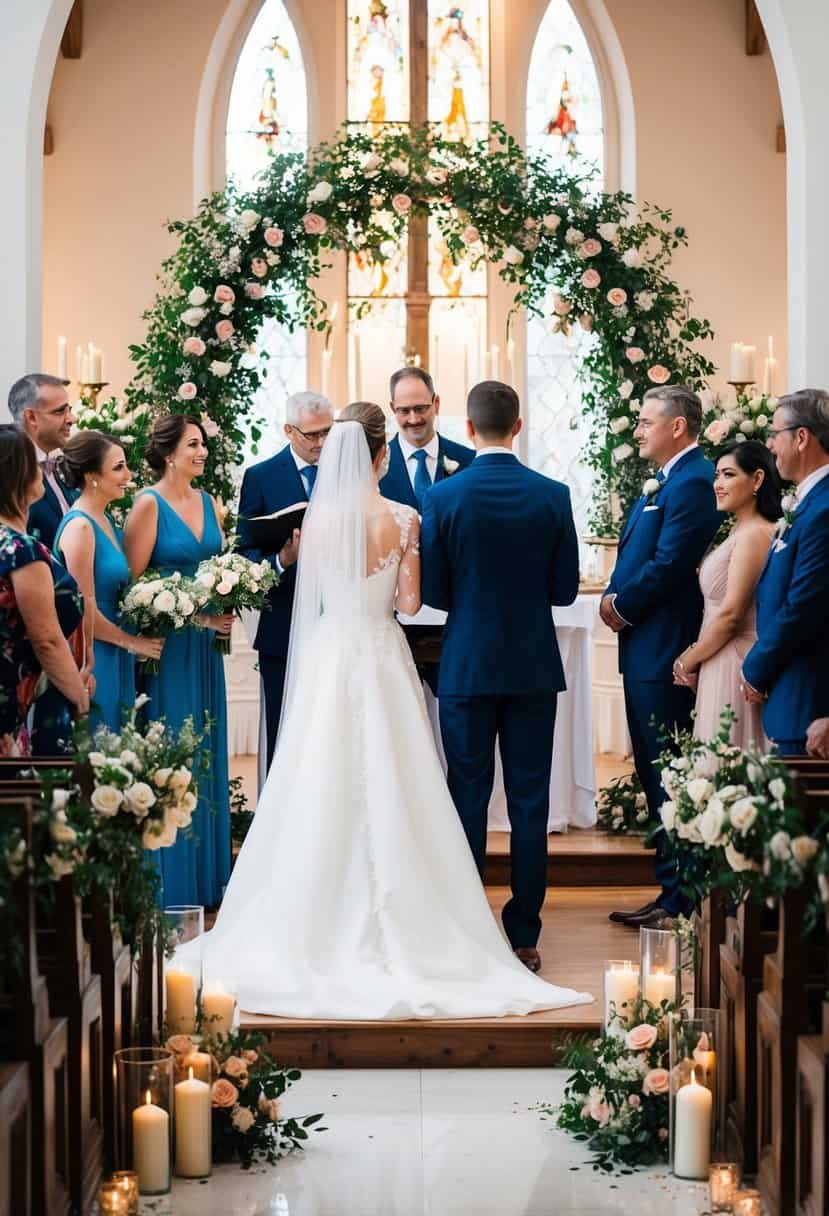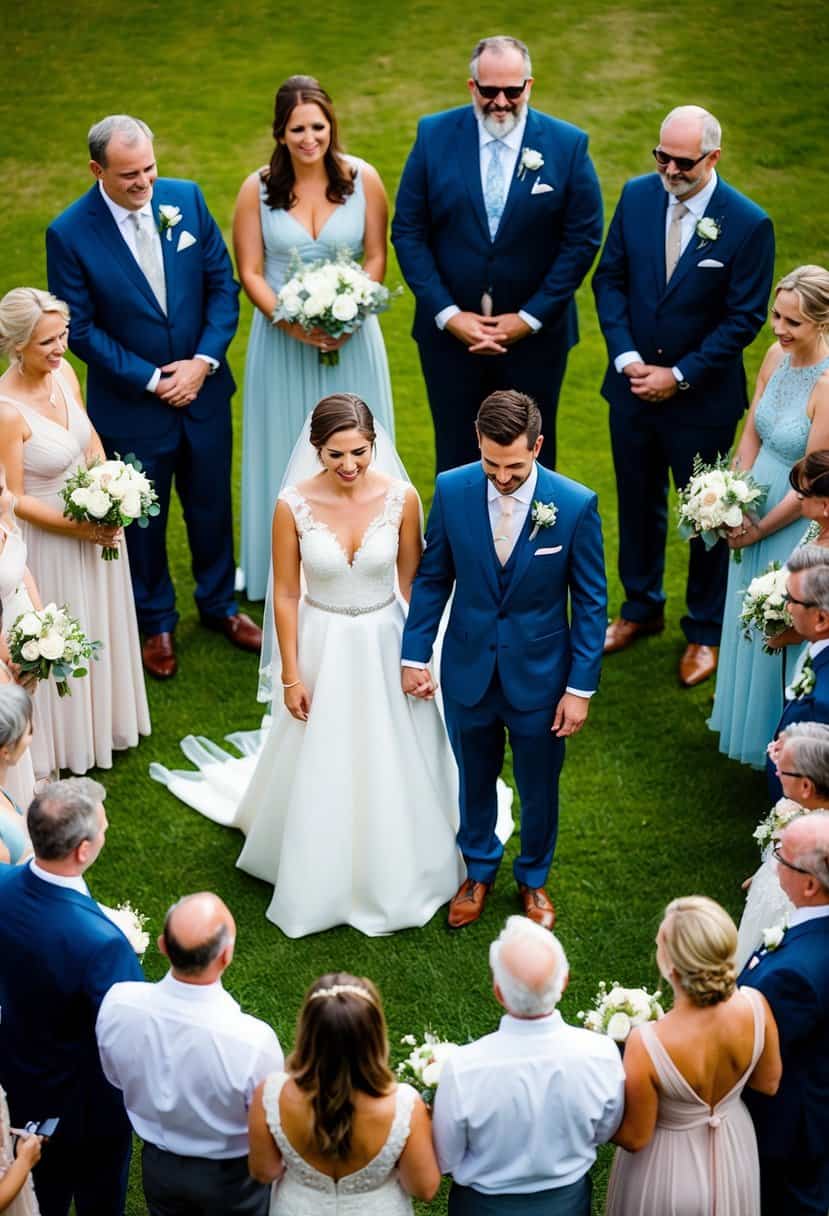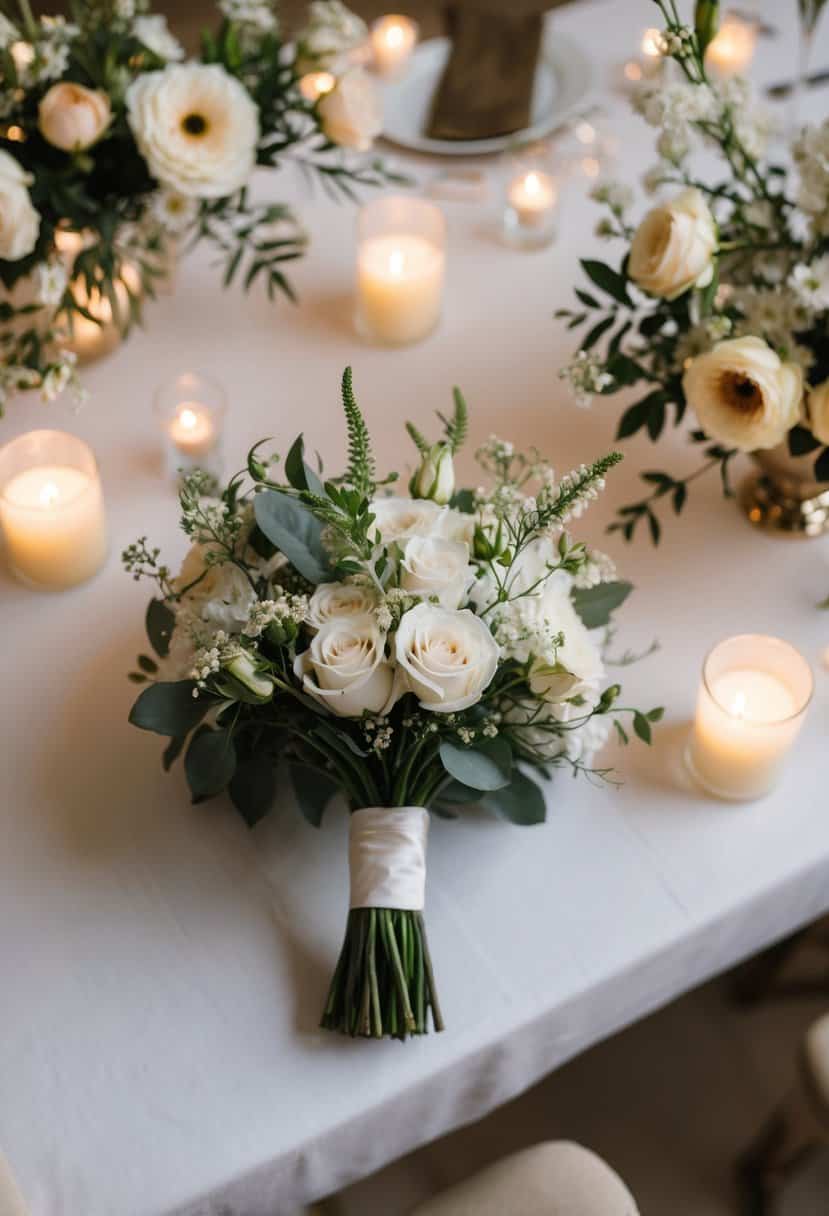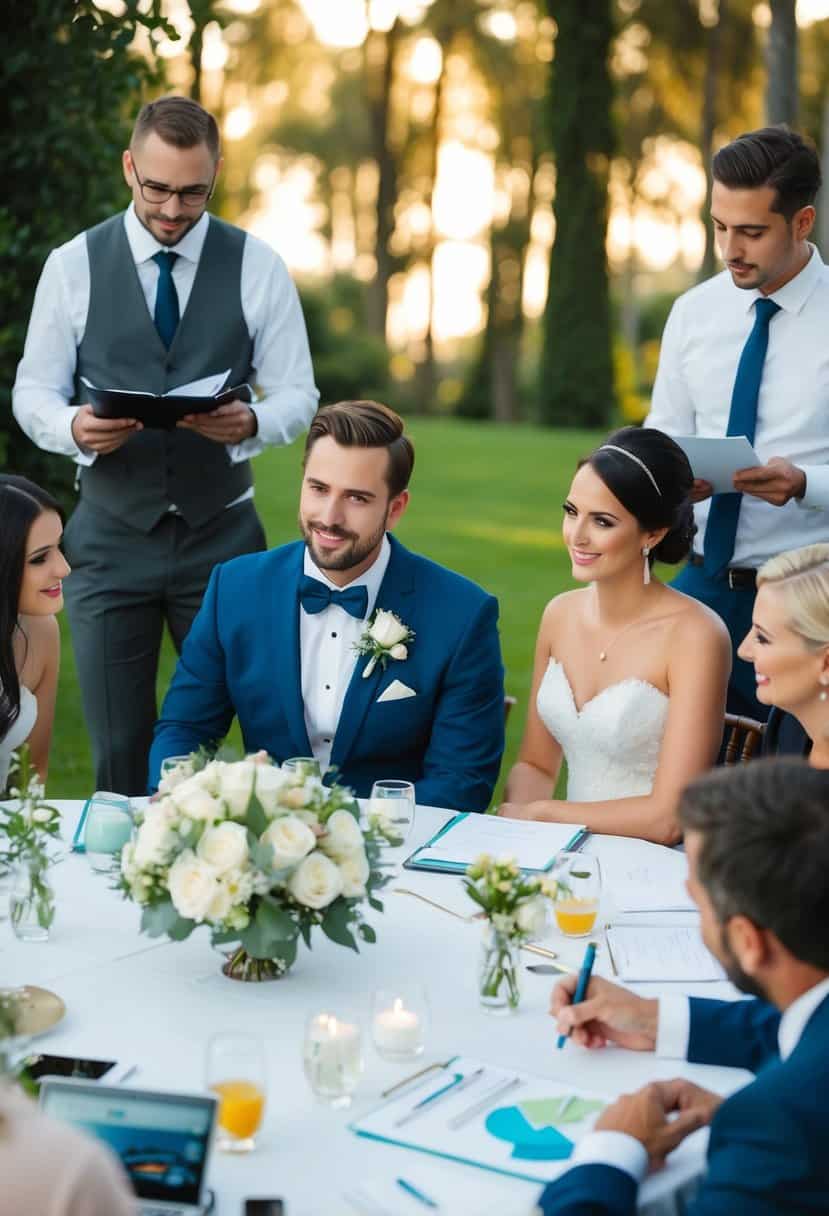Is a Wedding Mostly About the Bride? Exploring Modern Perspectives
When you think about a wedding, it’s easy to imagine it’s all about the bride. The classic image of a bride in a stunning dress often takes center stage. Yet, weddings are more than just a spotlight for one person. A wedding is a celebration that involves love, trust, and communication between both partners.

On your wedding day, while the bride may catch many eyes, the true essence of this occasion is about two people coming together. It’s a journey that both you and your partner embark on, filled with shared planning, joyful moments, and lifelong promises. Each element, from vows to the venue, reflects the unique blend of both personalities.
Even though there might be a traditional focus on the bride, successful weddings depend on both partners. By working together and trusting each other’s decisions, your wedding day will be a memorable one for both of you, showing how strong communication and cooperation can create something truly beautiful. Explore how every piece of the day can showcase the love story that you and your partner share.
Decoding Wedding Traditions and Roles

In weddings, each participant has a unique and important role. From the bride to the groomsmen, and bridesmaids to the flower girl, everyone contributes to creating a memorable ceremony. Let’s explore what each role traditionally involves.
Significance of the Bride in Wedding Ceremonies
The bride often takes center stage on the wedding day, reflecting cultural traditions that place importance on her appearance and entrance. Customs like walking down the aisle with the father highlight the familial transition. Brides have maid of honor and bridesmaids for support. Responsibilities such as planning styles, themes, and dresses often fall on the bride’s shoulders, making her a focal point in weddings. Additionally, a bridal party includes special roles like a flower girl, adding a charming touch to the ceremony.
Grooms and Groomsmen: Their Parts to Play
The groom plays a vital role, focusing on commitments and vows. Groomsmen and a best man are there to support him emotionally and logistically. They help with planning bachelor parties, organizing the groom’s day, and ensuring schedules run smoothly. The best man often gives a speech, serves as a right-hand man, and sometimes holds the rings until they are exchanged. This group adds humor and camaraderie to the day, making it enjoyable for everyone involved.
Roles of Bridesmaids and Man of Honor
Bridesmaids assist the bride throughout the planning and on the wedding day. Tasks include helping with dress choices, arrangements, and providing emotional support. The maid or man of honor has specific duties like holding the groom’s ring and bouquet during the ceremony, and preparing a toast for the reception. This role requires reliability and a close relationship with the bride, ensuring that she feels supported and cherished on her special day. Bridesmaids, along with the maid of honor, often plan events such as bridal showers and bachelorette parties.
Inclusive Wedding Practices
Modern weddings are embracing inclusivity by allowing for more flexible roles and celebrations. Non-traditional roles like “man of honor” or mixed-gender bridal parties are becoming more common, reflecting personal bonds over gender norms. Inclusivity extends to attire choices, ceremonies that reflect diverse cultures, and encouraging participation from all family members, like mothers of both the bride and groom. These practices emphasize that weddings are a joyful celebration of love and unity, welcoming everyone to partake in the festivities and traditions.
Navigating the Wedding Planning Process

Wedding planning involves juggling many responsibilities. You’ll need to work with a wedding planner, prepare for unexpected situations, and make sure your RSVPs and invitations are just right. Each step brings its own challenges, but with the right guidance, you can handle them smoothly.
The Role of the Wedding Planner
A wedding planner can be your best friend during the planning process. They help with everything from coordinating vendors to ensuring your timeline stays on track. Planners bring invaluable experience and often have established connections with photographers, caterers, and venues. This means you might get better deals or priority attention.
You’ll find that a good planner takes the stress off your shoulders. They can manage last-minute hiccups and keep everything running smoothly. Communication is key, so make sure you and your planner share a clear vision of your wedding day.
Making a Wedding Day Emergency Kit
An emergency kit is a lifesaver on your big day. You’ll want to include essentials like a mini sewing kit, stain remover, extra buttons, and safety pins. Throw in mints, tissues, and a basic first aid kit for quick fixes.
Think about comfort too. Pack band-aids for blistered feet, oil blotting sheets for photos, and backup makeup. Having these items close at hand means you or your wedding party can handle small disasters quickly and quietly. It’s all about being prepared for anything that might not go exactly as planned.
Wedding Invitations and RSVPs: Getting the Details Right
Crafting the perfect invitation sets the tone for your wedding. Include all essential details like the venue, date, and time. Ensure your RSVP cards have a clear deadline and contact information. This helps you get an accurate headcount and finalize your bookings for caterers and seating arrangements.
Consider adding a personal touch to your invitations. Handwritten notes or personalized designs make it extra special. Be sure to track RSVPs efficiently, whether through a wedding website or spreadsheet. Keeping organized prevents any last-minute surprises and ensures a smooth planning process.
Creating the Perfect Atmosphere

Planning a wedding involves many details that together create the desired atmosphere. Key elements include selecting a venue and theme that represent your personality, choosing attire that complements the setting, and valuing emotional support during the celebrations.
Selecting the Venue and Theme
Choosing the right venue is crucial for setting the stage for your wedding celebration. Whether it’s a charming countryside estate or an elegant ballroom, the location should align with your vision. Consider if you prefer a cozy, intimate setting or a larger, more grand space.
Along with the venue, the theme helps to unify the atmosphere. Think about color schemes and décor that match the mood you’re aiming for. Rustic weddings might feature natural elements, while a modern wedding could use sleek lines and bold colors. This harmony between theme and venue ensures a cohesive wedding vibe.
Dressing the Wedding Party: From Gowns to Suits
Your wedding attire reflects the style and tone of your celebration. Bridesmaid dresses, for example, should match the overall theme and flatter your bridal gown. Choose colors and styles that enhance the wedding’s palette and fit the formality of your event.
Groomsmen attire and the groom’s suit should complement the overall look. Whether it’s elegant tuxedos or casual suits, their ensemble should balance well with the bridesmaids’ outfits. Proper coordination in attire ensures a polished and harmonious visual effect at your wedding.
The Role of Emotional Support Throughout the Wedding Celebrations
Emotional support plays a big role during wedding celebrations. It’s essential to have a support system in place with family, friends, or a wedding planner to manage stress. Their presence can help you stay grounded and enjoy each moment as it comes.
Creating a supportive environment also involves making your guests feel welcome and appreciated. Incorporate small gestures, like personalized notes or heartfelt words, to express your gratitude. This encouragement and connection not just focus on you but also enhance the overall mood and enjoyment of your wedding reception.
Events Leading Up to the Big Day

As the wedding approaches, there are many important events and decisions to consider. These activities lead up to the special day and often involve family and close friends, making the journey memorable.
The Journey from Dating to Engagement
Your journey begins with dating, a time to get to know each other and build a connection. You explore shared interests, face challenges, and celebrate milestones. This period is crucial in forming the bond that leads to engagement.
Once engaged, it’s a time of joy and celebration. Announcing your engagement to family and friends marks the start of wedding planning. The engagement phase is where you set the tone for how you envision your wedding day. Preparing for this day is exciting, with friends and family playing a vital role in offering support and advice.
Planning the Pre-Wedding Gatherings
Pre-wedding events add excitement and allow you to connect with your wedding party and guests. An engagement party is a great start, celebrating the big announcement with loved ones. Bridal showers and bachelorette parties follow, providing an opportunity to gather and celebrate.
The rehearsal dinner is another significant event. It usually occurs the night before the wedding and includes the entire wedding party. This event is often less formal but gives everyone a chance to relax and enjoy each other’s company before the big day.
Each of these gatherings brings everyone closer and builds excitement. They allow you to create lasting memories with those who mean the most to you before walking down the aisle.
Budgeting and Logistics

Planning a wedding involves careful budgeting and managing logistics to ensure everything runs smoothly. Addressing the budget and transportation needs can help keep stress at bay throughout the process.
Wedding Budget 101: Managing Expectations and Costs
Creating a wedding budget is essential for managing costs. Start by listing all potential expenses, such as venue, catering, and attire. Aim to allocate percentages of your budget to each category. For example, attire may take up around 7% as noted by experts on the Ultimate Wedding Budget.
Consider prioritizing what’s most important to you and your partner. This could mean dedicating more funds to photography or floral arrangements. Always keep in mind that expenses can add up quickly, so it’s wise to set aside a portion of your budget for unexpected costs.
Using a detailed checklist can help you track your spending. By monitoring this closely, you can ensure you are staying within your limits. Review your budget periodically to make necessary adjustments, guaranteeing that you retain control over your finances.
Transportation and Accommodation for Guests and Wedding Party
Organizing transportation and accommodation is key to accommodating your wedding guests and party.
Begin by evaluating the logistics of where guests will be staying and how they will travel to and from events. This might include shuttle services from the ceremony to the reception.
If many guests are from out of town, block booking hotel rooms can simplify arrangements and often secure lower rates.
It’s beneficial to seek venues that offer wedding packages with bundled services for lodging and transportation.
Ensure clear communication with your guests regarding their accommodation and transportation options.
Providing details in your wedding invitations or on a dedicated website can make it easier for guests to plan their stay, thus contributing to a seamless experience for everyone.



